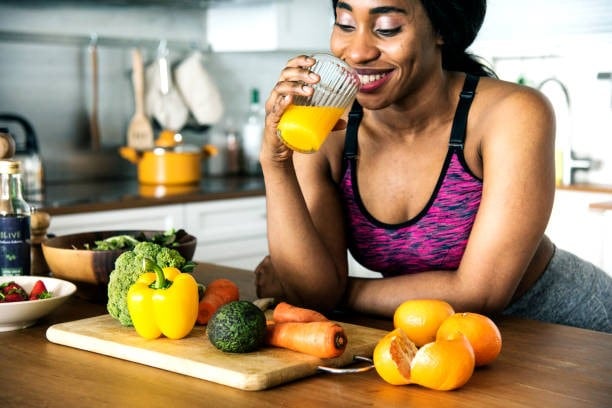Your strongest weapon against the coronavirus — beyond social distancing — is taking good care of yourself. Doing all that you can to make sure your immune system is in top shape, which means in balance, is the best way to stay healthy.
Plus, what better time to make a few, simple, healthy tweaks to your lifestyle than when you’re tucked in a home with a little extra time on your hands? “Boosting immunity is a gradual process. “It’s the things you begin and do over the long haul that build your immune system,” says Melissa Clarke, MD, a physician and author of the book “Excuse Me Doctor! I’ve Got What?” Dr. Clarke is also a patient advocate who is committed to helping people become empowered by taking better control of their health.
Almost everyone can improve their immune balance, so here’s how to get started, and what to avoid.
To get stronger:
• Don’t skimp on sleep. “Sleep is key to staying healthy. Your brain is detoxing during that time,” Dr. Clarke says, flushing out the waste products of the day. During six to eight hours of sleep, your immune system also reboots to fight inflammation and infections.
• Diversify your diet. “Consider the rainbow with food selections,” explains Dr. Clarke, foods that are green, red, orange, deep purple, yellow, etc. Each color represents a chemical that supports immunity. Good nutrition is critical for immune health.
Add whole grains in natural form (quinoa, barley, brown rice), fish, and the leanest cuts of meat. When stocking up on non-perishable foods, stay away from high-salt or sugary canned or processed foods. Focus on frozen fruits and vegetables, dried peas, and beans, or try canned sardines in water. “Stick with foods with one ingredient,” she adds.
• Include Valuable Vitamins and Minerals. No one is suggesting you waste money on high-dose supplements, instead try to eat well to get the daily recommended amounts of these nutrients proven to boost immune health.
- Vitamin C. “It has actually been “shown to have antiviral properties,” Dr. Clarke says. Vitamin C, as well as vitamins B6, D, and E support immune response. It’s always best to get your vitamins through food, but, she adds, “people with darker skin tones are likely to absorb less vitamin D, so work with your doctor to get tested to see if you are Vitamin D deficient. Then get their recommendation for how much to take as a supplement. In prescription form, your insurance may cover the costs.”
- Zinc and selenium. Zinc – found in many foods and supplements — not only helps the immune system function, it can reduce the length of time you have a cold. Best consumed as a trace mineral, selenium is also key to immune system health.
- Herbs that work – “Echinacea and elderberry boost immune response,” says Dr. Clarke, with a few caveats. First, she says Echinacea should not be used for continuous periods, “you should take it for two weeks at a time when you feel at higher risk due to stress or exposure to others who are ill.” In addition, elderberry, as well as echinacea, may trigger autoimmune responses in people with autoimmune diseases, such as rheumatoid arthritis or lupus (black women are more likely to have lupus). Elderberry is a proven antiviral. “Talk with your doctor if you have an autoimmune disease or are on immune suppression therapy before taking any supplements.”
• Don’t forget your gut. “A lot [60 to 70 percent] of your immune system is in your gut,” Dr. Clarke says. In many ways, gut bacteria directs the immune system. To encourage healthy flora, add yogurt, kimchi, or other fermented foods to your daily diet, eat high fiber foods like flaxseed or greens, avoid processed foods, or choose a supplement.
• Exercise. Working out is your immune system’s best friend. Getting your 30 minutes (minimum) a day supports the immune system at any age and reduces your risk for viral and bacterial infections. Since no one is going to the gym these days, check You Tube or Instagram for tons of free workouts. Lots of trainers are also streaming free sessions.
For an extra boost, exercise outside near water or trees. “Gardening, walking, or other ways of contracting your muscles also helps decrease chronic inflammation,” Dr. Clarke says, further aiding immune health.
• Ease stress. Meditate, pray, exercise, sing, dance on Tik Tok, knit – do whatever it takes to chill. “The chemicals that circulate when you are stressed will suppress your immune system,” Dr. Clarke explains.
Don’t Waste Time and Money on Magic Cures
Just like any other public health crisis, coronavirus has created a few scams and hoaxes, as well as the hope that home remedies will rescue us. Among them:
• Colloidal Silver, which can also permanently harm your health.
• Essential oils – which at current prices, will just tax your budget.
If you can just adapt some of the advice above though, “you will gradually increase your body’s resilience,” advises Dr. Clarke. Perhaps giving you a better shot at healing from the coronavirus or anything else that comes your way.
Sheree Crute is editor-in-chief and co-founder of Fierce.








